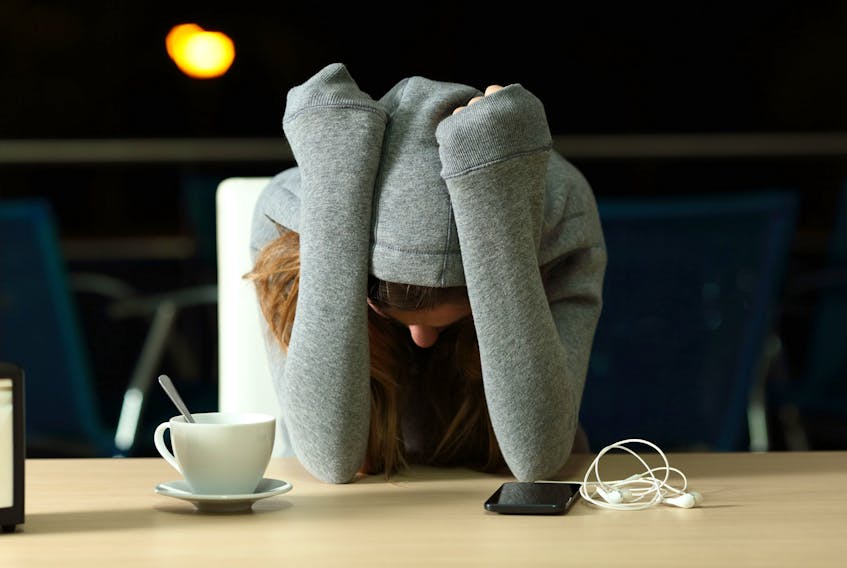When I was a teenager, there were no cellphones or social media, or even internet. (Conjure up that dark unfathomable world, if you can.)

We had one landline, the rotary dial phone on a table in narrow little hall leading to our never-used front door. The space was tight enough that you could slouch in a chair and twirl your hair with one hand while holding the receiver raptly to your ear, feet propped up against the wall. Nearly every hushed conversation I had with a friend was punctuated by my mother’s exasperated outburst: “Get your feet down off the wall!”
Phone time was scarce and strictly meted out.
By the time our daughter was the same age, cellphones and social media were part of the teenage uniform. Even then, a decade ago, cellphones were often actually used as phones — the difference between my youth and hers being that she had her own phone and her own number, and there was no such thing as “Would you get off the phone! Your father is expecting a call!”
Smart phones are convenient and a portal to the world, but they also open a great big door and let the world reach your teen. Friends can phone and text and communicate via social media to share — and sometimes magnify — every ounce of angst and drama that comes into their lives. Strangers can find an entrance, too.
Teens also use social media to build a persona that reflects the sort of facile perfection they see in the media all around them: perfect hair, perfect makeup, perfect vacation, perfect friends, perfect romantic interest — even perfect food.
And we all know that nobody’s perfect. Still, social media can create that pressure, and young people are feeling its ill-effects.
Smart phones are convenient and a portal to the world, but they also open a great big door and let the world reach your teen.
In November 2017, the New York Post reported that the suicide rate among U.S. teens grew during the same period that use of social media increased (2010-2015), and though there’s no definitive causal relationship between the two, a study published in Clinical Psychological Science suggests there might be a connection.
The Post reported: “Recent teen suicides have been blamed on cyberbullying, and social media posts depicting ‘perfect’ lives may be taking a toll on teens’ mental health, researchers say.”
The year before, in Huffington Post, McGill University assistant professor of psychiatry Robert Whitley made a similar observation:
“Most people on social media portray themselves and their lives in an unrealistically flattering manner. …,” he wrote. “This leads some passive viewers to make faulty social comparisons, falsely concluding that others are leading much more fulfilling, exciting and happier lives. This can invidiously gnaw at the viewer's psyche, making them feel inferior and inadequate.”
At Bristol University in the U.K., vice-chancellor Hugh Brady spoke to The Guardian this week about the seven suicides that have happened there in 18 months, the climb in demand for counselling services, and the possible link to social media pressures.
In an article Wednesday, he said the administration plans to discuss the possibility of a “detox from social media” with students.
“…The burden of social media may well be the straw that has broken the camel’s back and particularly this issue of what some people refer to as perfectionism,” said Brady, who has 22-year-old triplets who are students.
“It’s not OK to have a bad day. In the world of social media you have to look like you’re happy even when you are not.”
In “A Parent’s Guide to Teens, Social Media and Smartphone Addiction” on the blog Medium in July 2017, Lisa Buyer describes having her teenage daughter give up her phone for seven days.
It wasn’t easy.
“Like alcohol and drug addiction, teens need parents to guide and support them in balancing the necessary evils of smartphones and social media,” she writes.
She offers parents this blunt advice:
“#1 Do nothing and take your chances. #2 Do something and give your teens boundaries they can’t give themselves and ones you have never had to experience.”
Teens who have “detoxed” from social media for a time have reported feeling better about themselves, and more engaged with the world.
It’s worth a try.
Email [email protected]. Twitter: pam_frampton








